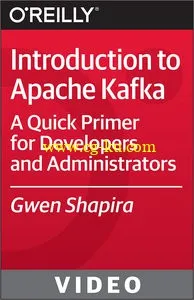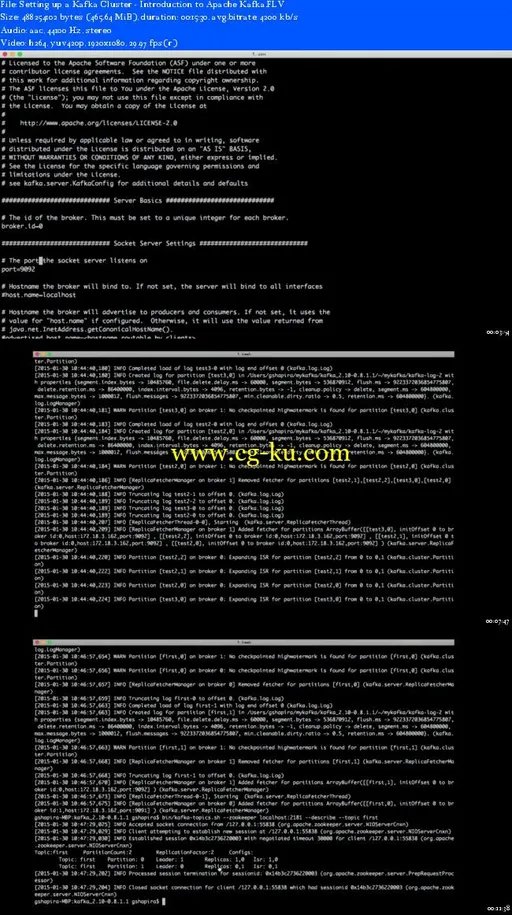
OReilly - Introduction to Apache Kafka
English | March 2015 | .FLV | h264, yuv420p, 1920x1080, 29.97 fps(r) | aac, 44100 Hz, stereo | 3.74 GB
Genre: E-learning
Currently one of the hottest projects across the Hadoop ecosystem, Apache Kafka is a distributed, real-time data system that functions in a manner similar to a pub/sub messaging service, but with better throughput, built-in partitioning, replication, and fault tolerance. In this video course, host Gwen Shapira from Cloudera shows developers and administrators how to integrate Kafka into a data processing pipeline.
You’ll start with Kafka basics, walk through code examples of Kafka producers and consumers, and then learn how to integrate Kafka with Hadoop. By the end of this course, you’ll be ready to use this service for large-scale log collection and stream processing.
Learn Kafka’s use cases and the problems that it solves
Understand the basics, including logs, partitions, replicas, consumers, and producers
Set up a Kafka cluster, starting with a single node before adding more
Write producers and consumers, using old and new APIs
Use the Flume log aggregation framework to integrate Kafka with Hadoop
Configure Kafka for availability and consistency, and learn how to troubleshoot various issues
Become familiar with the entire Kafka ecosystem
Gwen Shapira is a software engineer at Cloudera with 15 years of experience working with customers to design scalable data architectures. Working as a data warehouse DBA, ETL developer, and a senior consultant, Gwen specializes in building scalable data processing pipelines and integrating existing data systems with Hadoop. She’s a committer to Apache Sqoop and an active contributor to Apache Kafka.

发布日期: 2015-05-22